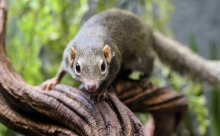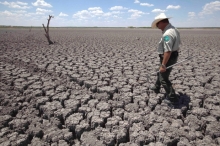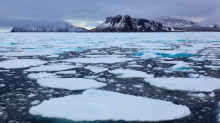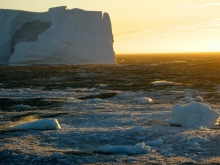Does evolution follow certain rules? Can these rules be predicted? Southeast Asia’s tree shrews break multiple rules when it comes to body size variation – with an unexpected twist – according to researchers from McGill University, University of Cambridge, and Yale University. The findings shed new light on the effects of climate change on the evolution of body size in animals.


To fully grasp and plan for climate impacts under any scenario, researchers and policymakers must look well beyond the 2100 benchmark. Unless CO2 emissions drop significantly, global warming by 2500 will make the Amazon barren, the American Midwest tropical, and India too hot to live in, according to a team of international scientists.

Forest fires have crept higher up mountains over the past few decades, scorching areas previously too wet to burn, according to researchers from McGill University. As wildfires advance uphill, a staggering 11% of all Western U.S. forests are now at risk.

The threshold for dangerous global warming will likely be crossed between 2027 and 2042 – a much narrower window than the Intergovernmental Panel on Climate Change’s estimate of between now and 2052. In a study published in Climate Dynamics, researchers from McGill University introduce a new and more precise way to project the Earth’s temperature. Based on historical data, it considerably reduces uncertainties compared to previous approaches.
The Arctic Ocean will be ice-free in the summer within the next 30 years, a study says, which will result in "devastating consequences for the Arctic ecosystem," according to McGill University in Montreal. Sea ice is frozen ocean water that melts each summer, then refreezes each winter. The amount of summer sea ice in the Arctic has been steadily shrinking over the past few decades because of global warming. Since satellite records began in 1979, summer Arctic ice has lost 40% of its area and up to 70% of its volume, the Guardian said.

The greater vulnerability of sea creatures may significantly impact human communities that rely on fish and shellfish for food and economic activity, according to the study published in the journal Nature.

By Chris Chipello, McGill Newsroom
Study reveals how wind patterns change along with sea-surface temperatures
Shifting winds may explain why long-term fluctuations in North Atlantic sea surface temperatures have no apparent influence on Europe’s wintertime temperatures. The findings, published in Nature Communications, could also have implications for how Europe’s climate will evolve amid global warming.

Statistical analysis of average global temperatures between 1998 and 2013 shows that the slowdown in global warming during this period is consistent with natural variations in temperature, according to research by McGill physics professor Shaun Lovejoy.

Opinion: Research Shows the Global Warming isn't natural
Published on June 9, 2014 | The Gazette
by: Shaun Lovejoy
Last year, the Quebec Skeptics Society laid down a challenge: “If anthropogenic global warming is as strong as scientists claim, then why do they need supercomputers to demonstrate it?”
My immediate response was: “They don’t.”

By Katherine Gombay - News - June 10
Researchers from McGill and the U.S. Geological Survey, more used to measuring thawing permafrost than its expansion, have made a surprising discovery. There is new permafrost forming around Twelvemile Lake in the interior of Alaska. But they have also quickly concluded that, given the current rate of climate change, it won’t last beyond the end of this century.

Statistical analysis rules out natural-warming hypothesis with more than 99% certainty
Published on April 11, 2014 | McGill Research
An analysis of temperature data since 1500 all but rules out the possibility that global warming in the industrial era is just a natural fluctuation in the earth’s climate, according to a new study by McGill University physics professor Shaun Lovejoy.

French researchers are cautioning that the mining and drilling of northern regions could potentially free dormant pathogens out of the frozen soil.
Published on March 4, 2014 | The Globe and Mail
by Tu Thanh Ha
French researchers who have revived a 30,000-year-old giant virus from a sample of Siberian permafrost are cautioning that the mining and drilling of northern regions could potentially free dormant pathogens out of the frozen soil.

